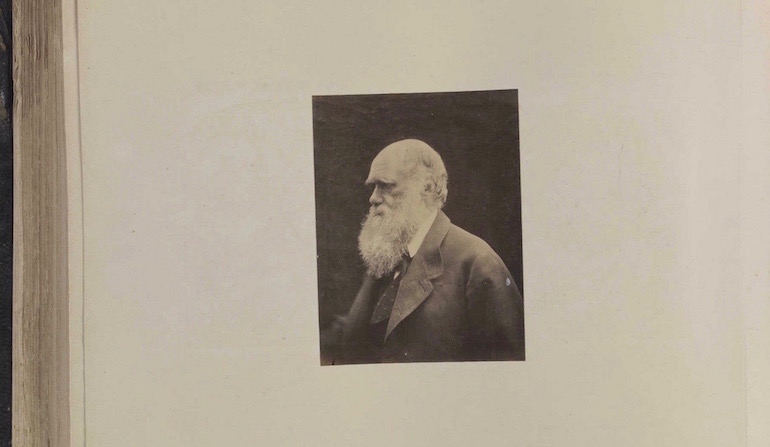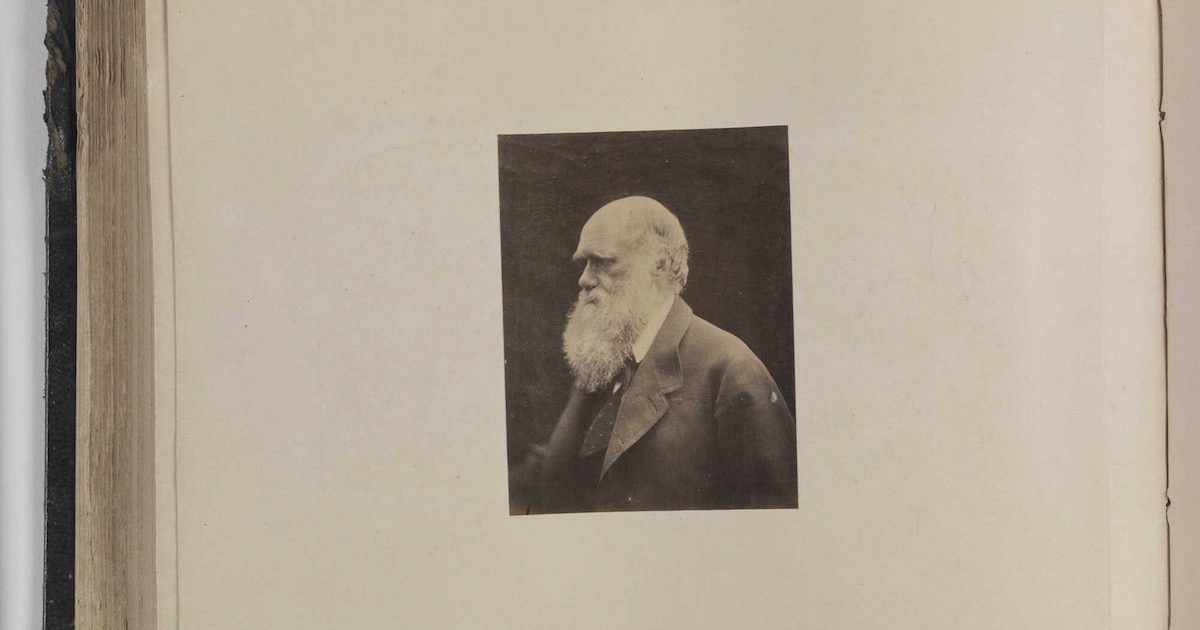 Evolution
Evolution
A.N. Wilson Is Right: “Darwin Was Wrong”


“Darwin was wrong” are the opening words of A.N. Wilson’s new biography, Charles Darwin: Victorian Mythmaker. I enjoyed the book, and I learned a lot from it. Wilson’s knowledge of the Victorian era is encyclopedic, and he was able to fill the book with fascinating details about Darwin and his contemporaries. But the book’s most interesting feature is its firm rejection of Darwin’s theory of evolution.
As his opening words suggest, Wilson intended his book as a gauntlet thrown at the feet of the Darwin lobby, and the lobby picked the gauntlet up. What followed was a series of reviews that panned the book — some with titles that asked rhetorically whether Wilson’s is “the worst book about Darwin ever written” or “how wrong can a biography be?”
British Darwinist Steve Jones called Wilson’s book “the founding volume of the Fake News School of Science Writing,” and American Darwinist Jerry Coyne called it “by far the worst” non-creationist book about Darwin he had ever read.
Unfortunately, Wilson was mistaken about some historical details. For example, to portray Darwin as a man who stole ideas from others, Wilson claimed that Darwin cut fifty pages from one of his notebooks to hide his intellectual indebtedness to Edward Blyth, and that the pages are still missing. But the pages were found and published decades ago, and they make almost no mention of Blyth. On this point Wilson was wrong.
As historian Michael Flannery has pointed out, Wilson was mistaken about many other details, too. But mistakes in historical details are not what really bothered the hostile reviewers quoted above. They were bothered by Wilson’s skepticism of Darwin’s theory.
First, Wilson pointed out that the general idea of biological evolution preceded Charles Darwin. His grandfather Erasmus had written about it; so had Jean-Baptiste Lamarck; so had Robert Chambers — the anonymous author of the 1844 book Vestiges of the Natural History of Creation.
Wilson gave Darwin ample credit for his scientific accomplishments, but not for discovering evolution. “Was Charles Darwin one of the greatest naturalists who ever lived? Undoubtedly,” Wilson wrote on page 358.
Did his collection of specimens, made as a young man while voyaging with the HMS Beagle, hugely expand the possibilities of taxonomic and geological research in a vast range of fields? Beyond question. Did he enrich forever the study of barnacles, pigeons, and earthworms? Indubitably. Is he the man who “discovered” evolution? Absolutely not.
But what is “evolution?” Nowadays the word is used in so many ways it’s often hard to know. “Evolution” is almost as slippery as the comic word “smurf,” which can mean anything at all.
Restricting ourselves just to biology, evolution can mean minor changes in existing species — what evolutionary biologist Yuri Filipchenko called “microevolution.” Or it can mean the origin of new species, organs, and body plans — what Filipchenko called “macroevolution.” Wilson uses Filipchenko’s terms, and correctly points out that people have been observing microevolution for centuries.
Evolution can also refer to the fact that life has a history. Judging from the fossil record, some species used to roam the Earth that are no longer with us (such as Tyrannosaurus rex), and there are species alive today that did not live in the distant past (such as Homo sapiens). Since new species, organs, and body plans have originated over time, macroevolution has occurred — though a mere statement of this fact does not tell us how it occurred.
Most of Darwin’s contemporaries and immediate predecessors believed that it occurred purposefully, in a series of creative steps. But Darwin’s Origin of Species was what he called “one long argument” against purposeful creation. In its place, Darwin proposed an unguided process of gradual “descent with modification” through the natural selection of small variations. According to Darwin, all living things are descended from one or a few common ancestors, and “there seems to be no more design in the variability of organic beings, and in the action of natural selection, than in the course which the wind blows.”
When Darwin’s theory was supplemented by genetics in the 20th century, “evolution” also took on the meaning of “change in gene frequencies.” So we can now distinguish at least seven different (though not all mutually exclusive) meanings of biological evolution:
- microevolution (minor changes within existing species);
- macroevolution (the origin of new species, organs and body plans);
- the history of life as reflected in the fossil record;
- changes in gene frequencies;
- transmutation (the descent with modification of some species from other species);
- universal common descent (the descent with modification of all living things from one or a few common ancestors);
- Darwinism (the descent with modification of all living things from one or a few common ancestors by unguided natural processes.
Meaning 1 is utterly uncontroversial. Meanings 2 through 4 are relatively uncontroversial (though there is plenty of controversy over the significance of specific fossils, and whether 4 is the cause of 2). Meanings 5 and 6 are surprisingly controversial among some biologists, but meaning 7 is the most controversial of all. It is also the reason for most of the opposition to evolution in our culture.
Wilson is not always clear about what he means by “evolution,” but he clearly rejects evolution in its 7th meaning. He argues that Darwinism is contrary to scientific evidence, both from the fossil record and the breeding of living species. Wilson also argues that Darwinism has become a secular religion for many people, making it possible (in the words of Richard Dawkins) “to be an intellectually fulfilled atheist.”
It is Wilson’s rejection of Darwinism that provoked the strong language of Wilson’s hostile reviewers. But on this point Wilson is right.
Photo credit: National Science and Media Museum, via Flickr.
